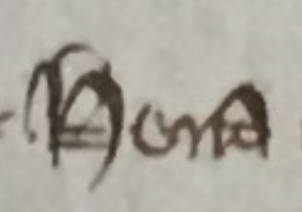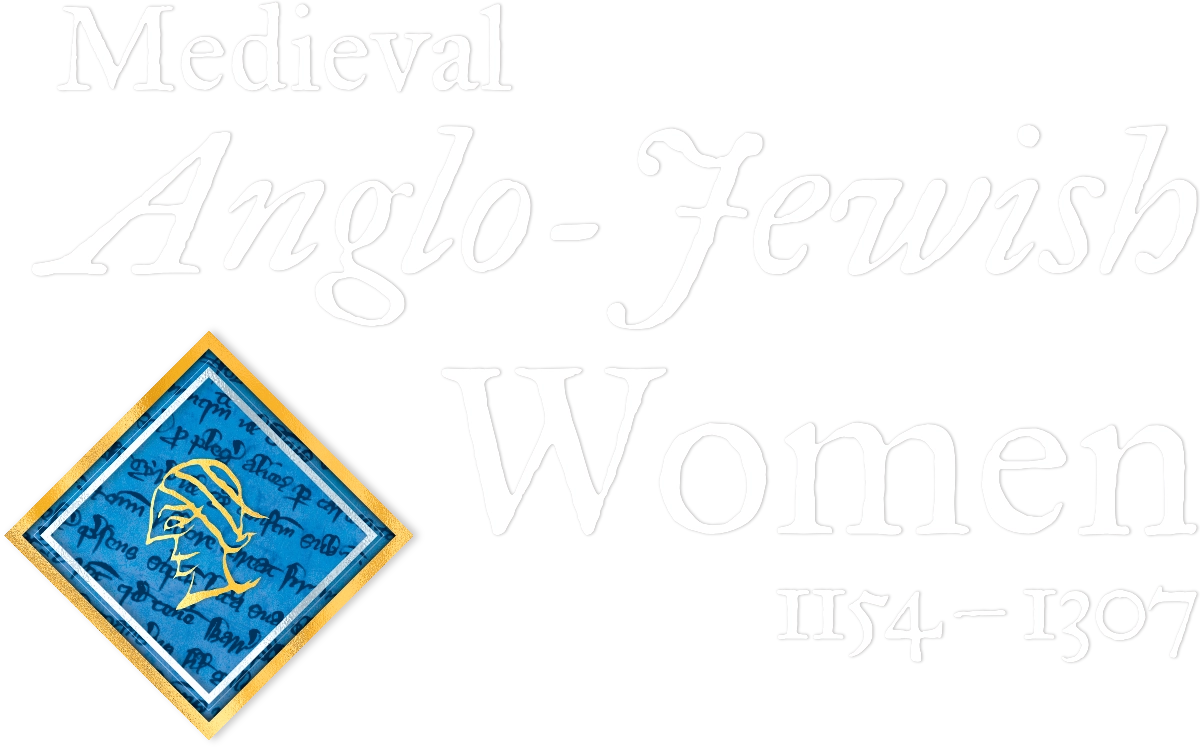Henecota of Nottingham
Referred to in records as: “Henecota of Nottingham”, “Henna”.
Brief biography

In February of 1278, King Edward I commissioned the knight Robert de Tybotot, a landholder
in Nottinghamshire and Derbyshire and justice of assize, to open an inquest into the
behaviour of Henecota (also called Henna) of Nottingham. Henecota, the wife of Solomon son of Bonenfant, had sometime in the past—the records say
long ago—insulted a Christian woman named Agatha in the Nottingham market. This market sat between the Nottingham Jewry on Warser Gate (about 250 yards away) and the local synagogue (at the intersection of Castle and Lister Gates). Jews and Christians would have walked together in this area, hearing the liturgy from their houses of worship and purchasing goods and groceries.
Agatha, the wife of Robert Nemek, accused Henecota of assaulting her here, spouting
abusive blasphemy against Christianity, and, with other Christians standing around
watching, spitting in her face. For her part, Henecota was willing to stand trial
and defend herself before whatever court or justice the king decided. By the end of
May, a mixed jury of Christians and Jews was to hear the case before the constable
of Nottingham Castle (William de Herleston) and his official—though, as so often,
no record of the outcome survives.
What motivated such conflict between these two women cannot be recovered, but it is
important to note that such interactions were an exception. For the most part, Jewish
and Christian women in urban centres lived on neighbourly terms.
Further reading
- Hillaby, J. and C. Hillaby, The Palgrave Dictionary of Medieval Anglo-Jewish History. London: Palgrave. 2015, s.v. Nottingham, p. 292 (Plan 9).
- Hoyle, Victoria, The Bonds that Bind: Moneylending between Anglo-Jewish and Christian Women in the Plea Rolls of the Exchequer of the Jews, 1218–1280, Journal of Medieval History 38 (2008), pp.119–129, at 126.
- Mundill, Robin R., The Jewish Entries from the Patent Rolls, 1272–1292, Jewish Historical Studies 32 (1990–1992).
- Mundill, Robin R., England’s Jewish Solution: Experiment and Expulsion, 1262–1290, Cambridge: Cambridge UP, 1998, p. 130.
Dates mentioned in records
1278
Locations
London, Nottinghamshire, Kent

